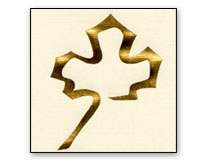- Home>
- Research & Collections>
- Scientific Services>
- Assessing and Managing Risks to Your Collections
Martin Lipman © Canadian Museum of Nature
Close.Assessing and Managing Risks to Your Collections
An Interactive Training Workshop
The Canadian Museum of Nature regularly offers interactive training workshops on Assessing and Managing Risks to Your Collections. The workshops are open to anyone with a professional interest in collection preservation.
Protecting Our Heritage
Museum collections continue to grow, and their maintenance is increasingly costly. These collections often contain irreplaceable objects and represent centuries of painstaking work and great investment. Every institution needs cost-effective preventive conservation to protect collections for generations to come. It is critical to establish priorities of action, to ensure the care and safekeeping of collections.
The Workshop
Gerald R. Fitzgerald © Canadian Museum of Nature
Incorrect humidity deteriorated this mammoth fossil tooth.
This introductory 1, 2, 3 or 5-day, interactive, non-technical workshop is designed for all stakeholders in collection preservation
It introduces a methodology based on the Cultural Property Risk Analysis Model, which was developed by the Canadian Museum of Nature. This tested and proven model gives a framework for establishing priorities in the area of preventive conservation. The methodology is based on current risk-assessment processes and risk-management principles used in business and industry.
During the workshop, participants will learn how to:
- identify all agents of deterioration (photo gallery of examples)
- identify risk types
- describe specific risks
- estimate magnitudes of risks
- rank their relative importance
- mitigate risks
- evaluate the relative costs, benefits and collateral risks of implementing the proposed mitigation measures.
Participants will receive a workshop manual, which contains the complete course content, exercises, references and a glossary of terms.
Key Benefits for Your Staff and Institutions
Martin Lipman © Canadian Museum of Nature
Undeteriorated mammoth fossil tooth.
This workshop will enable anyone involved with collections to:
- compare different risks among different collections
- prioritize and identify preventive conservation issues and mitigation measures
- develop cost-effective plans to reduce overall risks
- consider all issues related to proposed mitigation strategies from an institutional perspective
- clearly communicate preventive conservation issues, requirements, and their relative importance to other staff and to management and funding bodies
- work in teams within their own institution
- convince management and funding bodies of the importance of the issues and of the necessity to invest in preventive measures.
More Information
The workshop is normally designed for two days, but it can be adapted to a shorter period for specific audiences, or to address the risk assessment portion only.
The museum also offers other training on preservation and care of collections that can be customized to meet the needs of your institution, organization or special interest group.
We have presented the risk assessment approach or delivered workshops in: Amsterdam, Birmingham, Dallas, Halifax, Gainesville, Gothenburg, Hong Kong, Leicester, London, Montréal, New Orleans, New York, Ottawa, Portland, Rio de Janeiro, St. Louis, Sydney, Stockholm, The Hague, Victoria, Washington, Wellington, Winnipeg and Worcester.
To enquire about booking a workshop at your place of work, and for more details on the workshop and other customized training, please contact us:
Luci Cipera
- 613.364.4079
- lcipera@mus-nature.ca
Carolyn Leckie
- 613.566.4797
- cleckie@mus-nature.ca.
Awards
Canadian Museums Association © Canadian Museums Association
The American Institute for Conservation of Historic and Artistic Works and Heritage Preservation
Award for Outstanding Commitment to the Preservation and Care of Collections, 2003. In addition to continued commitment to all aspects of preservation, the award highlighted the work of the museum's Collection Risk Assessment team.
Canadian Museums Association
Award for Outstanding Achievement, conservation category, 2002. More than 50 staff members contributed to this work over the ten years in which the project was developed.





